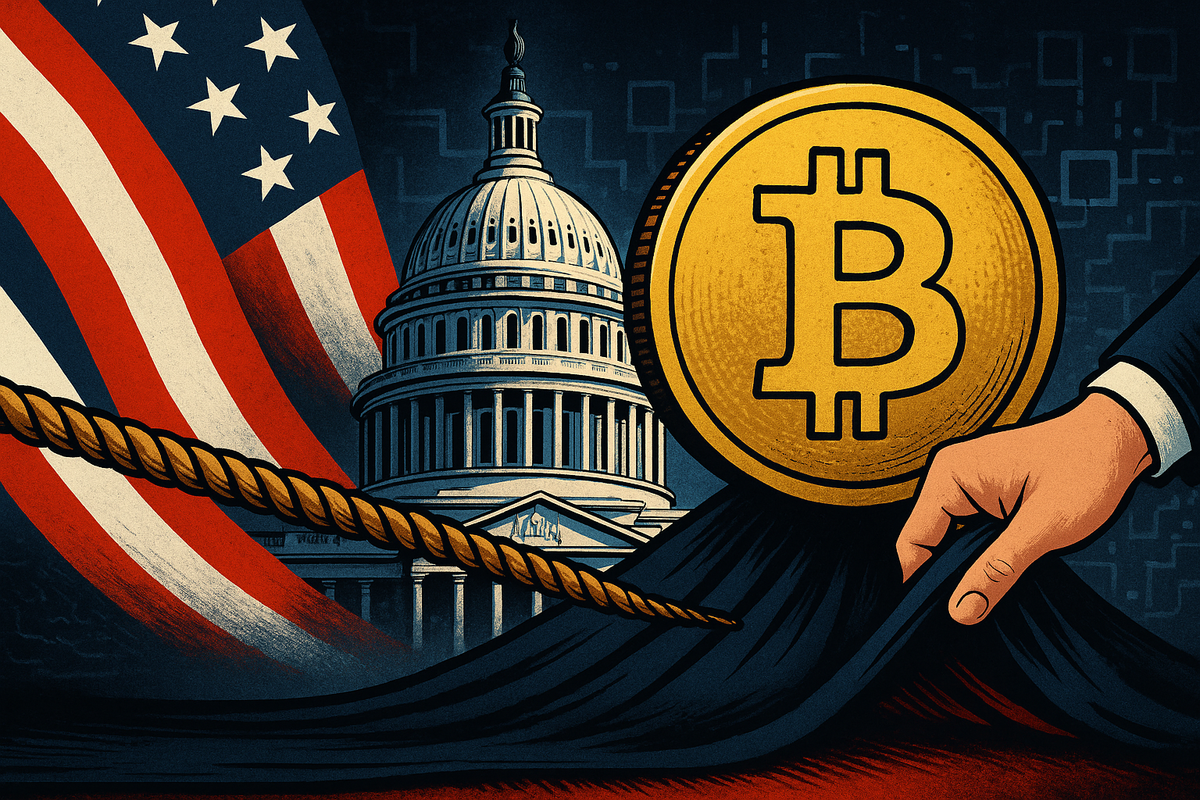
The term "rug pull" in the cryptocurrency world typically refers to a malicious act by project developers who abandon a project after raising funds, leaving investors with worthless tokens. While the US government, as a sovereign entity, cannot execute a "rug pull" on Bitcoin in this traditional sense, certain governmental actions, policies, or regulatory shifts could significantly impact Bitcoin's value or accessibility, leading some investors to perceive these as a form of "rug pull" due to a sudden and detrimental change in market conditions or the regulatory environment. This article explores the nuances of this perception and the US government's evolving stance on Bitcoin.
Key Information
A "cryptocurrency rug pull" is a fraudulent scheme where developers of a new cryptocurrency project suddenly withdraw all liquidity from a decentralized exchange (DEX) or abandon the project entirely, leaving investors with unsellable or worthless tokens. This can manifest as liquidity pulls, fake projects, pump-and-dump schemes, or limiting sell orders. While always unethical, the legality varies, with hard rug pulls (malicious code) generally being illegal.
While the US government does not "develop" Bitcoin, its policies can profoundly influence the cryptocurrency market. Several actions or proposed policies have been perceived by some as potentially detrimental to Bitcoin's ecosystem, akin to a "rug pull" in their effect on market sentiment and value:
- Treasury Secretary's Comments on Bitcoin Reserve (August 2025): US Treasury Secretary Scott Bessent announced that the government would not be purchasing additional Bitcoin for its strategic reserve, relying solely on confiscated assets. While the government also stated it would stop selling its existing Bitcoin holdings, the decision not to actively purchase more was seen by some as a withdrawal of potential government support, causing a sharp dip in Bitcoin prices due to fading expectations of a government buyback program.
- Proposed Regulatory Burdens (December 2024): The Biden administration (prior to the current administration) proposed a rule requiring decentralized finance (DeFi) brokers to file a Form 1099-DA, subjecting them to similar reporting rules as traditional securities brokers. Critics argued this "midnight crypto rule" would stifle innovation and burden entrepreneurs, potentially discouraging participation in the digital asset market. Although the House of Representatives later voted to roll back this rule in March 2025, its initial proposal highlighted how certain regulatory actions could be perceived as detrimental.
- Central Bank Digital Currency (CBDC) Exploration (under previous administration): The Biden administration's Executive Order in March 2022 called for exploring and implementing a U.S. Central Bank Digital Currency (CBDC) if deemed in the national interest. Some in the crypto community viewed a CBDC as a potential competitor to decentralized cryptocurrencies like Bitcoin, which could diminish their role or value. However, the current Trump administration has since prohibited the establishment, issuance, or promotion of CBDCs within the US.
It is crucial to differentiate these governmental actions from a typical "rug pull" scam. Government policies, even if they negatively impact the market, are generally aimed at broader economic or regulatory objectives, such as financial stability, consumer protection, or combating illicit finance, rather than fraudulent intent by project developers.
Context and Background
The US government's stance on Bitcoin and cryptocurrencies has undergone a significant evolution. Initially marked by skepticism and a focus on risks, it has shifted towards a more nuanced approach that seeks to embrace innovation while establishing regulatory clarity and addressing illicit activities.
- Historical Context: The journey began with a cautious approach, primarily focusing on the illicit use of cryptocurrencies. The Biden administration's March 2022 Executive Order on "Ensuring Responsible Development of Digital Assets" marked a turning point, acknowledging the potential benefits of digital assets for payments and financial inclusion. This order largely put to rest notions of a federal ban on Bitcoin.
- Comparison to Other Things: Unlike a developer-led rug pull, which is a direct act of fraud, government actions are typically policy decisions made within a legal and political framework. While these decisions can have profound market impacts, they are generally driven by broader economic, national security, or regulatory goals, not by a desire to defraud investors in a specific cryptocurrency project.
- Relevant Trends: The current Trump administration has adopted a decidedly pro-crypto stance, aiming to position the United States as the "crypto capital of the world." This includes President Trump's positive views on the industry and the establishment of a Strategic Bitcoin Reserve in March 2025, capitalized with confiscated Bitcoin, with a policy against selling these holdings. Regulatory efforts are ongoing, with bills like the Financial Innovation and Technology for the 21st Century Act (FIT21) aiming to clarify the roles of the Securities and Exchange Commission (SEC) and the Commodity Futures Trading Commission (CFTC). The SEC's approval of spot Bitcoin Exchange-Traded Products (ETPs) in January 2024 was a significant step towards mainstream investment access. Furthermore, the current administration has explicitly prohibited Central Bank Digital Currencies (CBDCs) within the US, a notable shift from the previous administration's exploration.
Implications
The perception and reality of US government actions have several implications for the Bitcoin market and the broader crypto ecosystem:
- Short-term Implications: Policy announcements or even proposed regulations can lead to immediate market volatility as investors react to perceived shifts in the regulatory landscape. The Treasury Secretary's comments on the Bitcoin reserve, for instance, caused a rapid price dip. Regulatory uncertainty can also deter institutional investment and slow down innovation in the short term.
- Long-term Outlook: The long-term outlook depends heavily on the final shape of regulatory frameworks. A clear, supportive, and innovation-friendly regulatory environment could solidify the US's position as a leader in the digital asset space, fostering growth and adoption. Conversely, overly burdensome or ambiguous regulations could push innovation and investment offshore. The current administration's pro-crypto stance and the establishment of a strategic Bitcoin reserve suggest a more positive long-term outlook for Bitcoin's integration into the US financial system.
- Factors That Could Change the Situation: Future legislative developments, such as the passage of comprehensive crypto bills, could provide much-needed clarity. Changes in presidential administrations or shifts in global geopolitical dynamics could also alter the US government's approach to Bitcoin and digital assets. The ongoing evolution of the technology itself and its increasing mainstream adoption will also continue to shape policy discussions.
Summary
While the US government cannot execute a traditional "rug pull" on Bitcoin, its policy decisions and regulatory actions can significantly influence the cryptocurrency market, leading to perceptions of a "rug pull" due to sudden and impactful shifts. The government's stance has evolved from initial skepticism to a more nuanced approach, with the current administration adopting a pro-crypto stance, establishing a strategic Bitcoin reserve, and prohibiting CBDCs. The ongoing development of clear regulatory frameworks will be crucial in balancing innovation with consumer protection and financial stability, ultimately shaping Bitcoin's future in the US.





